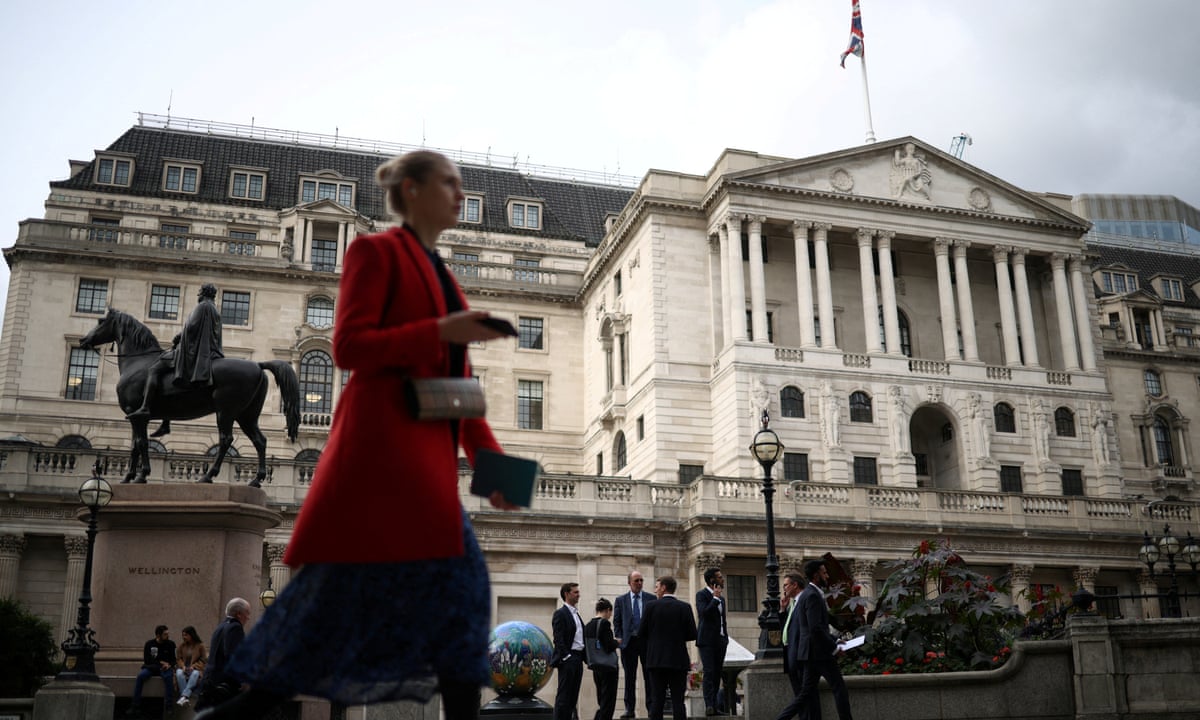Bank of England Assures the UK Economy Can Cope with Higher Rates in 2023

Bank of England Assures the UK Economy Can Cope with Higher Rates in 2023
With rates rising significantly from 0.1% at the end of 2021 to 5% last month, the BoE has sparked worries about the impact on families, companies, and the more significant financial sector; There is a possibility that this could lead to an economic recession.
On Wednesday, the Bank of England stated that although the British economy has shown resilience to the rise in interest rates, it would take time for the full effects of the increase to be felt. With rates rising significantly from 0.1% at the end of 2021 to 5% last month, the BoE has sparked worries about the impact on families, companies, and the more significant financial sector; There is a possibility that such events could lead to an economic recession.
In its semi-annual review of the state of the financial system, the BoE stated that there was no cause for concern. Although it would take time for the full effects of increased interest rates to manifest, it was noted that the UK economy has so far proven to be robust to interest rate risk.

Even with the higher cost of living and inflation at over 9%, the percentage of highly indebted families was likely to stay below the 2007 peak, according to the BoE. According to data source Moneyfacts, on Tuesday, average interest rates for new two-year fixed-rate mortgages—the most popular type of house financing—rose above their peak during last September’s mini-budget to a 15-year high of 6.66%.
In the second half of 2023, according to forecasts from the British financial sector, 800,000 homeowners will need to refinance on to more costly mortgages. That number will rise to 1.6 million in 2024. Compared to financial institutions in other nations, British banks were less vulnerable to the negative impacts of increased interest rates than individuals were, according to the BoE. At the same time, the business sector remained “broadly resilient.”

In a significant turn of events, the Bank of England released a report assuring that the UK economy can cope with higher interest rates. This statement comes after the Central Bank took measures in 2023 to increase interest rates to curtail the inflationary pressures that have been growing over the past year.
Earlier this year, the Bank of England’s Monetary Policy Committee (MPC) incrementally raised the bank rate, a critical tool used to manage inflation and keep the economy in check. These measures came as a response to the recent bout of inflation, which significantly exceeded the Bank’s 2% target.
Inflation had been driven by various factors, including supply chain disruptions related to the ongoing effects of the pandemic, rising energy prices, and the labour market tightening faster than anticipated. The rate increase will cool down consumer demand and investment, reducing inflationary pressures.
The Bank of England has sought to reassure the UK public and business community that the economy is resilient and well-prepared for the increased rates. According to the Bank, the UK economy has shown signs of robust growth and substantial recovery since the COVID-19 shock in 2020. Despite some economic headwinds, the Bank predicts that the economy will absorb the increase in interest rates without significant disturbances.

Several factors underpin their confidence:
- Improved Economic Outlook: Since the worst of the pandemic, the UK economy has rebounded with considerable strength. GDP growth rates have surpassed expectations, and unemployment rates have decreased significantly from their peak during the height of the pandemic.
- Resilient Financial System: The UK’s financial system has remained resilient throughout this period, with banks having ample capital and liquidity to weather the interest rate changes. The Bank of England has conducted stress tests, revealing that the UK financial system can handle more severe conditions than currently.
- Household and Corporate Balance Sheets: Despite initial fears, households and corporates have shown strong balance sheets. For homes, savings rates are at an all-time high, and mortgage arrears remain low. In contrast, corporations have continued to generate profits and reduce their debt levels.
Despite the reassurances, the Bank of England acknowledges that it is not yet time to be complacent. The monetary authority will continue to monitor the economy carefully and vowed to act if it sees signs of distress.
The Bank’s strategy appears gradualism – slowly increasing rates while continuously assessing the economy’s response. This cautious approach balances the need to curb inflation while not derailing the recovery.

The Bank’s statements have been greeted with cautious optimism by businesses and investors alike, with many viewing the rate hikes as necessary to keep the economy in check and prevent runaway inflation.
However, it added, “some smaller or highly leveraged firms are likely to feel the pressure from higher financing costs.”Following its annual “stress test” of the industry, the BoE declared that each of the eight leading lenders in Britain has sufficient capital to withstand higher rates.
The BoE further stated that in the wake of Silicon Valley Bank’s failure, it collaborated with the British finance ministry to ensure that small banks had options for an orderly closure free from some regulations imposed on more prominent institutions. At a press conference that starts at 8:00 GMT, BoE Governor Andrew Bailey will announce the report’s conclusions.

The Bank of England’s reassurances are welcome news during economic uncertainty. Yet, much will depend on the actual performance of the UK economy in the face of these rate hikes. For now, the Bank of England has offered a degree of confidence in the face of potential economic turbulence, assuring that the UK economy has the resilience to handle higher rates. As 2023 unfolds, the world will watch closely to see how these predictions play out.




